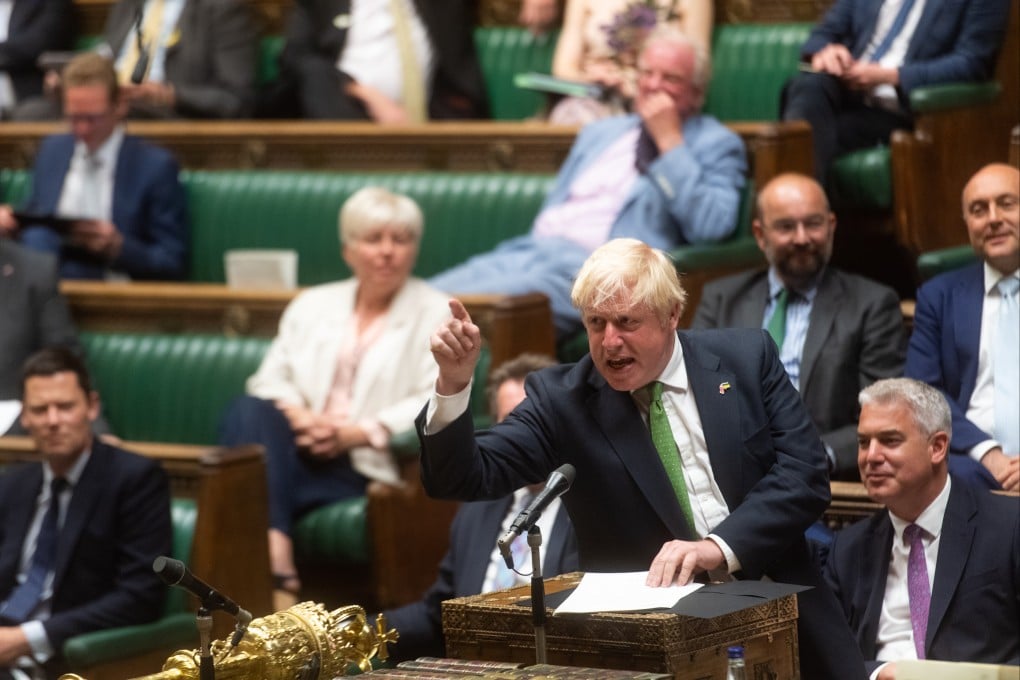Advertisement
Letters | The UK is an example of why democracy badly needs rethinking
- Readers discuss how Boris Johnson’s tenure is an emblem of what is wrong with democracy, and why Hong Kong parents must go beyond buying exam workbooks to raise good learners
Reading Time:3 minutes
Why you can trust SCMP
2

Feel strongly about these letters, or any other aspects of the news? Share your views by emailing us your Letter to the Editor at [email protected] or filling in this Google form. Submissions should not exceed 400 words, and must include your full name and address, plus a phone number for verification.
As one of the world’s oldest democracies, the United Kingdom has now found itself bogged down in a democratic quagmire.
After an endless barrage of gaffes and scandals, a string of ministerial resignations finally pushed the beleaguered British prime minister Boris Johnson to step down. Nevertheless, his downfall does not bring an end to the political turmoil facing the British government, but is a sign showing that something is wrong with the country’s centuries-old democratic system.
Advertisement
Former British prime minister John Major blamed Johnson’s government for breaking the law and ignoring conventions, inflicting widespread damage on the country. During his three-year tenure, Johnson challenged the constitution by, among other things, unlawfully proroguing parliament for five weeks amid the Brexit crisis and trying to keep the police’s investigation into partygate from parliamentary scrutiny.
Also, his government put forward highly controversial bills, including the Police, Crime, Sentencing and Courts Act 2022 and the Elections Act, which are believed to undermine democracy and human rights.
Advertisement
We cannot help asking, why did the British people choose such a pompous, unscrupulous and incompetent buffoon to lead their country? Well, it may not be the electors’ fault because, in fact, the mandate that Johnson claimed to have amounted only to less than 30 per cent of the electorate in the 2019 general election – the Conservative Party won about 42 per cent of the votes, and voter turnout was about 67 per cent – even though the party won a landslide majority of parliamentary seats.
Advertisement
Select Voice
Select Speed
1.00x